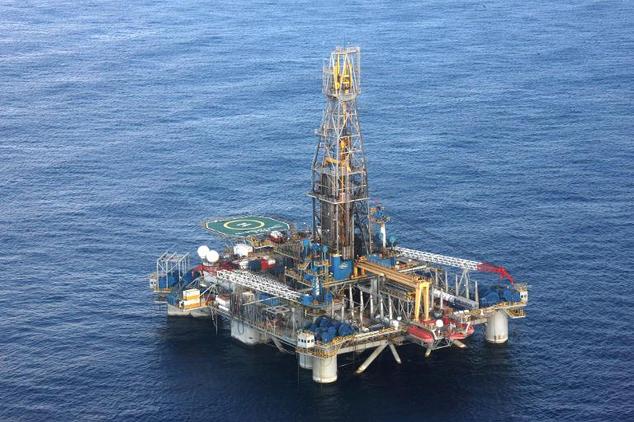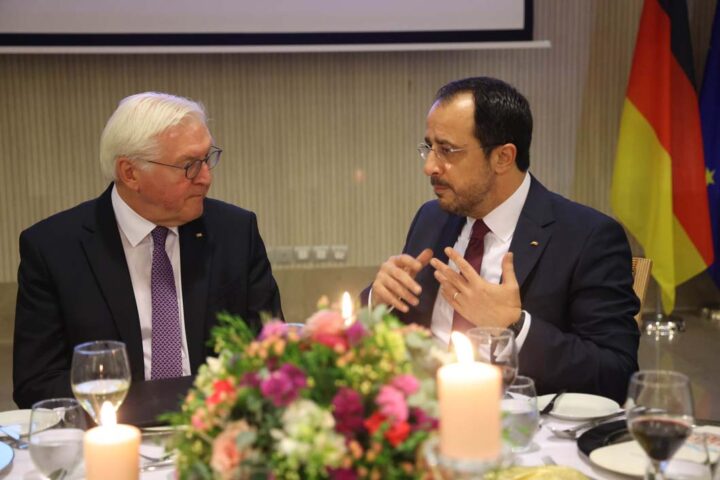By Dr Charles Ellinas
With international oil companies postponing drilling and activities in its EEZ until 2021 – should conditions allow it – Cyprus energy is entering an uncertain future.
Many would like to think that with the Covid-19 pandemic over, normality will return next year, drilling will resume, and Cyprus energy plans will get back on track.
But with the global hydrocarbons industry in crisis, this is unlikely to happen.
There is a huge oversupply of oil and gas – as a result of low demand due to the economic impact of Covid-19 – and prices are extremely low.
And this will continue into the longer-term, for at least the next 2-3 years.
Cyprus energy plans are in danger of going the way of the well-known Greek song ‘Let’s go into the unknown with hope as our boat’.
If Cyprus decides that that is the only option available to us, lets at least do it knowingly.
Global oil and gas
Major international oil and gas companies (IOCs) saw huge profit reductions at the end of the first quarter of 2020.
In fact, ExxonMobil reported its first loss, $610million, in over 30 years and Shell cut its dividend by two-thirds, for the first time since WWII.
Since then oil and gas markets deteriorated even further, plagued by a massive drop in demand and unprecedentedly low prices, hitting the IOCs badly.
The oil and gas industry is in crisis. Second-quarter results are expected to be even worse than the first.
These dire developments have forced the IOCs to cut spending in 2020 by between 20%-50% and more are expected next year.
It is likely to take 2-3 years before normality returns.
Between now and then the industry will undergo consolidation and restructuring.
Reduced spending will concentrate on core business and areas with high returns.
Despite the slump, a key priority for the IOCs is to safeguard profitability and maintain dividends, expected by their shareholders.
And while all this is happening the pressure from environmentalists and renewables is increasing.
While oil and gas experience a slump in demand due to the impact of the Covid-19 pandemic on the global economy, the International Energy Agency (IEA) confirmed in its recent ‘Global Energy Review’ that renewables demand is actually increasing.
And this is despite the low oil and gas prices, putting greater pressure on a beleaguered sector.
There is now a growing view that a reduction in oil demand is likely to endure beyond Covid-19.
Bernard Looney, CEO BP, told the FT this week the Covid-19 crisis is “adding to the challenges of oil in the years ahead”, likely to usher-in “peak oil” demand in the 2030s.
The gas industry was facing oversupply and low-price challenges before Covid-19, and these have only worsened.
With new LNG projects under construction and more having received FIDs (final-investment-decision) during the last two years, something like 186mtpa (million tonnes/annum) new LNG may come into the market by 2027.
As demand is expected to increase by 100-150mtpa by 2030, oversupply and low prices should continue over this period.
Spot LNG prices in Europe, Asia and the US have now converged to around $2/mmbtu (about 1000 cubic feet).
Even though these are expected to rise post-COVID-19, looming oversupply means that prices will not reach levels that would make East Med gas commercially viable.
It is under this challenging backdrop the future of East Med hydrocarbons must be viewed.
Cyprus EEZ
With drilling postponed into 2021, the question that should concern us is whether there are risks that post-COVID-19 continuing exploration in Cyprus’ EEZ may no longer be a priority for the IOCs.
Companies may feel that global gas markets will remain oversupplied and prices will stay unattractively low – this is exactly what could happen.
Moreover, with the development of already discovered gas-fields challenged by high costs and low gas prices, as a last resort, the IOCs may consider divestment.
This would be a serious geopolitical, but also economic, blow to Cyprus.
The riches expected to be made out of Cyprus’ EEZ may never materialize.
This is also what renders Turkey’s continued provocations in Cyprus EEZ anachronistic.
As are statements that the route of East Med gas to markets is through Turkey.
Given global markets and prices, this is not viable, even if it ever became politically possible.
Aphrodite
After announcing a first-quarter loss of $4billion – due to asset impairments it took on its shale assets – and 53% cuts in 2020 spending, David Stover, CEO Noble Energy said on 8 May: “At Noble, we will not invest capital at less than acceptable returns, and we will preserve our resources for a better future…We focus on value, not volume.”
Israel and Leviathan were mentioned, but no reference to Cyprus and the Aphrodite gas-field in Noble’s statement.
So, the question is where does this put the development of Aphrodite?
The future for Aphrodite becomes even more precarious when Delek’s dire finances are considered.
The company is facing serious debt problems, to the point that it may be unable to continue as a going concern.
Moreover, with global gas prices as low as $2/mmbtu, Egypt is unable to sell its LNG even at the low asking price of $5/mmbtu and has shut-in Idku.
It is also in the unenviable situation of being locked into importing Israeli gas at over $6/mmbtu while curtailing production of its own cheaper gas from the Zohr gas-field.
It is no surprise that import of Aphrodite gas to Idku is stalled and, with gas prices remaining low into the 2020s, the future of such a deal is at risk.
Is the export of Aphrodite gas to Egypt’s Idku LNG plant proceeding as planned? And at what timetable? Given Stover’s statement, it is important to provide clarity and assurances.
If not, what is Cyprus doing to address these issues and what plans and actions are being put in place to ensure that development of Aphrodite does not remain in the doldrums for the next 2-3 years, or even longer?
If Noble and Delek are unable to provide such re-assurances, Stover’s statement that “we will preserve our resources for a better future”, should be of great concern. While for Noble Energy this may make sense at such difficult times, it may not necessarily be right for Cyprus.
Cyprus energy future
The alternative option of exporting East Med and Cyprus gas to Europe through the EastMed gas pipeline, now back in the news, is equally challenged for the same reasons as before.
Even though the required gas supplies are available, it still needs to secure gas sales contracts in Europe.
With gas demand in Europe expected to be declining as we approach 2030, due to the impact of the Green Deal, and prices staying low, competition from plentiful and much cheaper gas makes such a project highly challenging.
The Covid-19 pandemic will leave the island in a very difficult economic situation for years to come.
On top of that, with Aphrodite gas inaccessible, Cyprus is embarking on a costly project to import LNG.
It is galling for Cypriots and industry to have such an asset remaining unused, while they are being asked to continue paying high electricity costs for years to come, without any hope of change.
Cyprus urgently needs a revised, post-COVID-19, energy strategy, maximizing regional market options.
The writer is Senior Fellow Global Energy Center, Atlantic Council










